League Of Olympic Swim Legends: Michael Phelps Tops 400IM Podium With Darnyi & Dolan
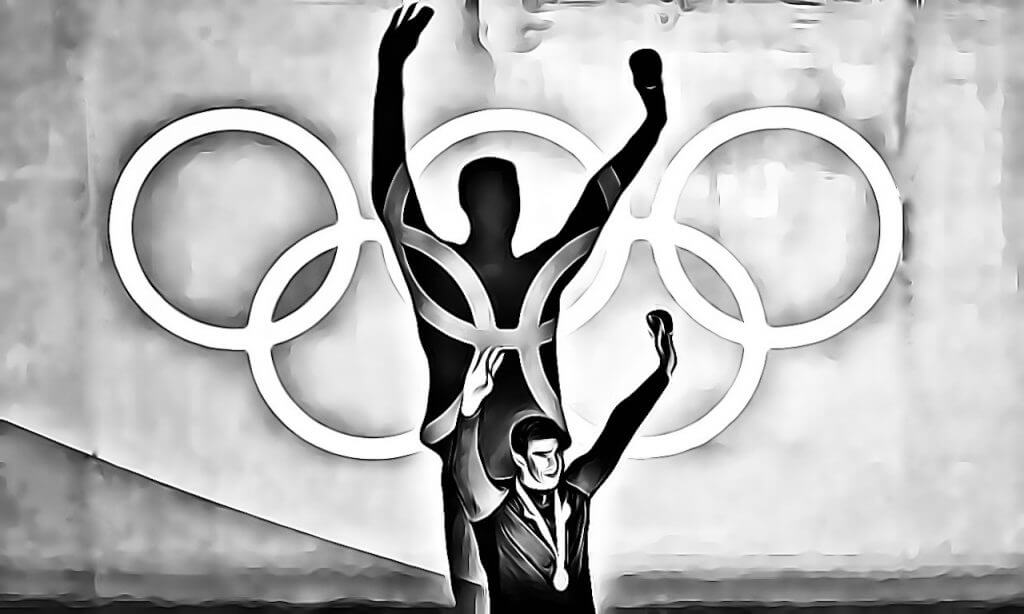
What do you think would have unfolded had Tokyo 2020 gone ahead as planned this week – and where would all of that fit in with the Olympic swim legends of yesteryear, like … Michael Phelps, Tamas Darnyi and Tom Dolan…?
To mark the eight days over which the Tokyo 2020 Olympic Games would have unfolded had the coronavirus pandemic not forced postponement, the team at Swimming World is filling the void with a Virtual Vision Form Guide and League of Olympic Swimming Legends.
Tokyo Vision: Daiya Seto Seeking to Ride Momentum to Top of Podium in 400 IM
We start our League of Legends series with an event in which we knew who our all-time winner would be before the count: the G.O.A.T, who else!
Men’s 400m Individual Medley
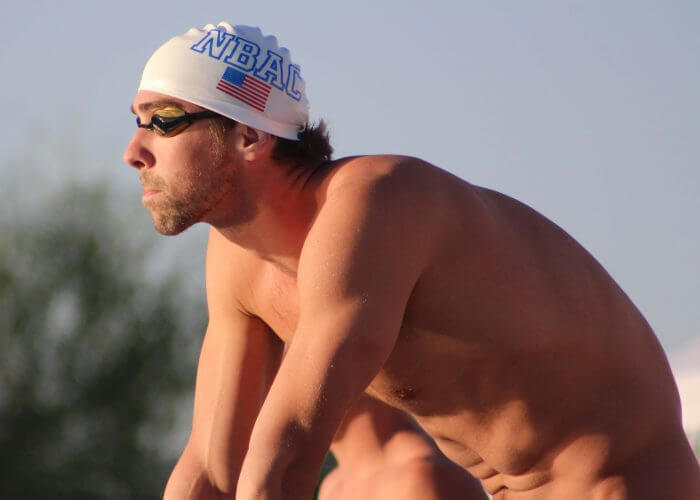
Michael Phelps – Photo Courtesy: Azaria Basile
The Podium
- Michael Phelps (USA)
- Tamas Darnyi (HUN)
- Tom Dolan (USA)
The Other Finalists (Listed Alphabetically):
- Alex Baumann (CAN)
- Charlie Hickox (USA)
- Ryan Lochte (USA)
- Dick Roth (USA)
- Jesse Vassallo (USA)
- and in Lane 9* to recognise the only other Olympic champion who claimed the crown in World-record time not already in the line-up above:
- Rod Strachan (USA)
* – in our series, we will use Lane 9 to add an athlete whose story reflects extraordinary situations of different kinds
All-Time Battle Of Olympic Swim Legends Goes To Michael Phelps
With a pair of Olympic titles and eight world records to his credit, Michael Phelps was the easy victor over fellow two-time gold medalists, Tamas Darnyi of Hungary and American Tom Dolan. Phelps’ octet of world records spanned 2002-2008 and saw him take the world record from 4:11.09 down to 4:03.84, where the record currently stands.
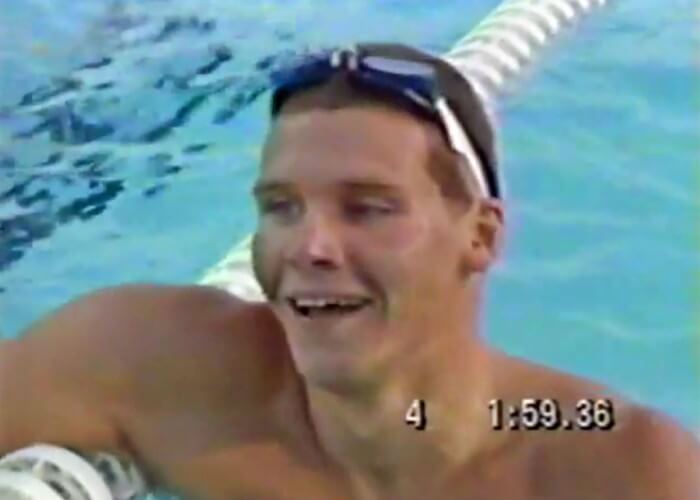
Tamas Darnyi – Photo Courtesy: YouTube
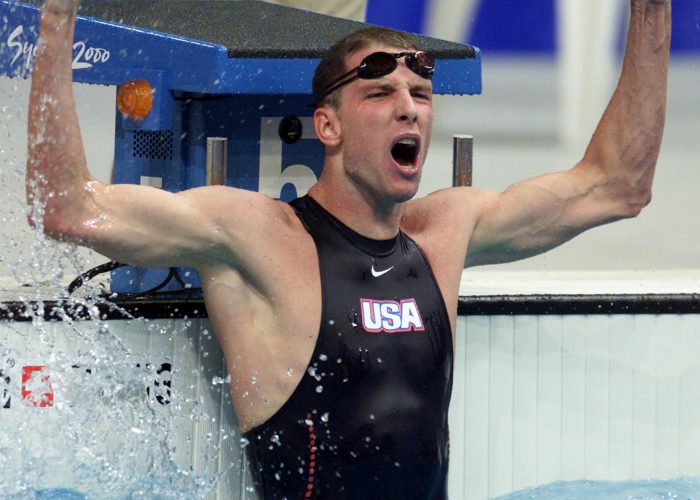
Tom Dolan – Photo Courtesy: CC/JDP / Swimming World Archive
If the breaststroke was once the weakest portion (relative term) of Phelps’ strokes, his work in the event with coach Bob Bowman eventually made that leg a strength and eliminated the opposition’s chance to sneak through an open door. More, with the butterfly opening the event, Phelps was able to apply immediate pressure on his rivals, and that early heat was almost always too much to overcome.
As expected, given the nature of the event, Darnyi and Dolan were complete performers. Darnyi may have been best known for his medley exploits, but he was also a European champion and bronze medalist at the World Championships in the 200 butterfly. As for Dolan, his distance-freestyle skills enabled him to finish the 400 medley with a strength.
Of the all-time finalists, only the United States’ Jesse Vasallo lacks an Olympic title in the event, and that omission is by no fault of his own. Vasallo would have been the favorite for gold at the 1980 Olympics in Moscow had United States President Jimmy Carter not opted for a boycott of the Games. Vasallo was in peak form as the reigning world champion.
Olympic Swim Legends – Our Winner’s Winning Ways:
Michael Phelp’s First Olympic Gold – In World-Record Time
2004 Athens – Men 400m Individual Medley – Athletes: 36; Nations: 27
- 4:08.26wr Michael Phelps USA
- 4:11.81 Erik Vendt USA
- 4:12.15 Laszlo Cseh HUN
4:12.28 Alessio Boggiatto ITA
4:14.49 Oussama Mellouli TUN
4:18.60 Ioannis Kokkodis GRE
4:19.97 Jiro Miki JPN
4:20.08 Travis Nederpelt AUS
Date of final: August 14, 2004
Tipped to match Mark Spitz‘s seven gold medals of 1972, Michael Phelps (USA), with four golds and two silvers in the pantheon from 2003 World Championships, was the star-in-waiting of the 2004 Games before he had swum a stroke in the pool.
His first event, his first of an astonishing, outer-orbit count of 23 Olympic gold medals, was the only one that produced a world record at the 2004 Games. While he would emerge from Athens with six golds – one shy of the Spitzean target that carried a prize of US$1 million from his sponsor, Speedo – Phelps emerged from the 2004 Games with a right to a place among the very greatest that the sport had ever seen.
At trials a month before the Games, Phelps, 19, had set a world record of 4:08.41 in the 400m medley, down from the 4:09.09 that made him the first man inside 4:10, for the World crown at Barcelona 2003.
No-one had come close to him on the clock – or in a big race since he took down Tom Dolan’s global standard of 4:11.76 from the Sydney 2000 Olympics with a 4:11.09 at Fort Lauderdale on August 15, 2002. That effort marked the third pioneering pace-setter of his career, after two World records over 200m butterfly either side of his 17th birthday in 2001.
In the final in Athens, Michael Phelps, coached by Bob Bowman, led from start to finish, turning inside world-record pace throughout: 55.57, 1:57.10, 3:10.36 and on to a 4:08.26 World-record triumph. His margin of victory was the biggest in the history of the event.
In 4:11.81 to 4:12.15 and then 4:12.28, the battle for silver between Erik Vendt (USA), Laszlo Cseh (HUN) and Alessio Boggiatto (ITA) left the American and the Italian in exactly the same places – respectively second and fourth – in which they had finished four years earlier at Sydney 2000 when Michael Phelps was a 15-year-old kid finishing fifth in his first Olympic final, over 200m butterfly.
Cseh, who had turned second after backstroke and breaststroke, was let down by a 59.47 homecoming split that compared to splits of 57.90 for Phelps and 57.75 for Vendt, a world-class 1500m man.
Michael Phelps went on to win gold medals in the 100m and 200m butterfly, the 200m medley, the 4x200m freestyle and bronze medals in the 4x100m freestyle and the 200m freestyle at Athens 2004. He also earned a gold medal as a heats swimmer in the 4x100m medley relay after opting to give his right to a place in the final to teammate Ian Crocker.
And here’s Beijing 2008, the first gold of … 8!:
Another Great 400IM Race In History
When Gunnar Larsson Took Gold By 0.002sec Over Tim McKee & Forced A Change To How Swimming Measures Time & Place
1972 Munich – Men 400m Individual Medley – Athletes: 32 Nations: 24
- 4:31.98or Gunnar Larsson SWE
- 4:31.98or Tim McKee USA
- 4:32.70 Andras Hargitay HUN
4:35.44 Steve Furniss USA
4:37.38 Gary Hall USA
4:37.96 Bengt Gingsjo SWE
4:40.39 Graham Windeatt AUS
4:40.66 Wolfram Sperling GDR
Date of final: August 30, 1972
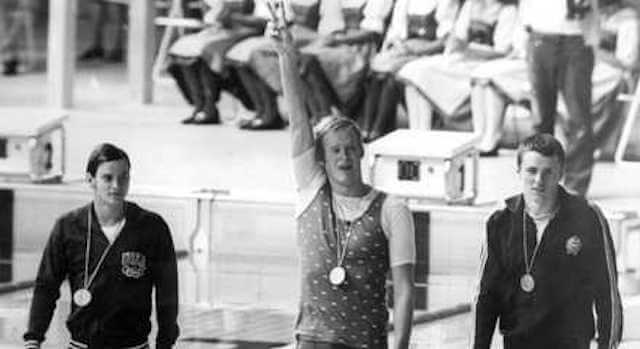
l-r: Tim Mckee, Gunnar Larsson and Andras Hargitay at uniek 1972- Photo Courtesy: ISHOF/AP archive
Only once in Olympic history has a race ended with two men being granted a joint Olympic record but one man given gold and the other silver. The 1972 400m medley final saw Gunnar Larsson (SWE) and Tim McKee (USA) clock 4:31.98. For eight minutes, time stood still on the scoreboard, the result the first shared victory in Olympic swimming history. Officials then declared Larsson the champion: 4:31.981 to 4:31.983. Never again would such a distinction be made: thousandths of a second ruled inadmissible at the end of 1973 in a FINA vote.
The Guinness Book of Records called the affair the closest race in sports history. Larsson claimed the inaugural world 200m medley crown in 1973 and since retiring has commentated on aquatic sports for Swedish television. McKee, just 5ft 8in (1:72m), won silver again, 0.94sec behind teammate Rod Strachan in 1976. He then took a job in a marketing firm but in 1982 gave that up to become a lifeguard on Miami Beach. Years after Munich, when asked about his silver lining, he said:
“You waste the present and the future when you dwell in the past.”
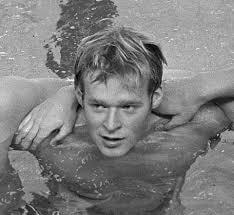
Photo Courtesy: Gunnar Larsson
The heats in Munich saw the Olympic record fall twice. In the first heat, Andras Hargitay (HUN) clocked 4:37.51 and in the second Larsson reduced that to 4:34.99, a European record. Into the final, world record holder Gary Hall (USA) was considered among the favourites for the title, having claimed silver in the 200m butterfly behind teammate Mark Spitz just two days before and having dominated 400m medley for four years since taking silver at the 1968 Games just 0.3sec behind Dick Roth – who makes our all-time legends line up led by Michael Phelps.
Hall stunned his rivals and the crowd with a 58.38 opening split that was inside world-record pace and even well inside the first 100m split of 59.10 in which he turned on his way to the silver in the 200m butterfly behind Spitz. Hargitay was nearest in 1:00.22, Steve Furniss (USA) on 1:00.78, McKee on 1:02.06, with Larsson languishing in sixth on a more prudent 1:03.41.
Hall, one of two men to interrupt East German Roland Matthes‘ run of world records in the 200m backstroke, maintained a strong lead to halfway, turning in 2:06.32. Furniss was next through in 2:10.09, with McKee and Hargitay also inside 2:11. Larsson had work to do: still in sixth, he turned in 2:14.07, his deficit to Hall one of almost eight seconds.
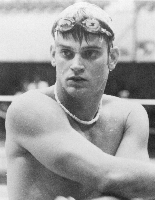
Tim McKee
On breaststroke, it was soon apparent that Hall was dealing with three enemies: his rivals, his weakest stroke and fatigue. By 250m, McKee had passed the leader and a length later turning into freestyle on 3:29.91, with Hall still second in 3:31.04, Hargitay on 3:31.62 and Larsson, after an excellent 1:18.10 breaststroke split, now firmly in contention on 3:32.17. Stroke by stroke, Larsson picked off his rivals, his world-class status over 400m freestyle coming into play: in 1970 he was European champion and record holder. McKee had company with 25m to go. From there, the naked eye could not make out which swimmer had the edge. By the end, neither could the clock to a hundredth of a second.
Furniss and Hall lost the battle for bronze to Hargitay, who at nine had almost drowned in the Danube. At the medal-winners’ press conference, he held up his bronze medal and explained:
“After that, my mother ordered me to learn to swim and this is what’s come of it.”
Four days later, Larsson and McKee finished first and second once more, though the gap between them in the 200m medley left no doubt about who the winner was: Larsson set a world record of 2:07.17 to McKee’s 2:08.37. Furniss was third, Hall fourth and Hargitay fifth.
When Gunnar Larsson Visited The International Swimming Hall of Fame (ISHOF)



